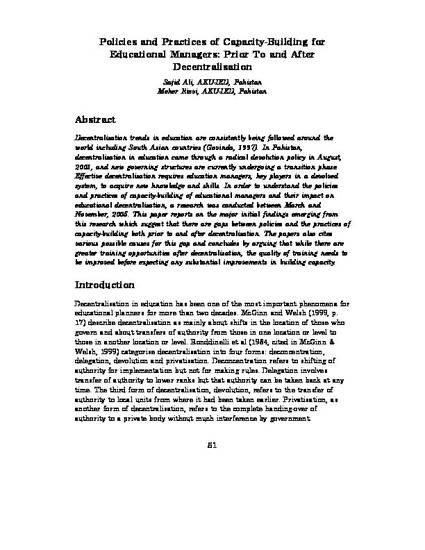
Decentralisation trends in education are consistently being followed around the world including South Asian countries (Govinda, 1997). In Pakistan, decentralisation in education came through a radical devolution policy in August, 2001, and new governing structures are currently undergoing a transition phase. Effective decentralisation requires education managers, key players in a devolved system, to acquire new knowledge and skills. In order to understand the policies and practices of capacity-building of educational managers and their impact on educational decentralisation, a research was conducted between March and November, 2005. This paper reports on the major initial findings emerging from this research which suggest that there are gaps between policies and the practices of capacity-building both prior to and after decentralisation. The papers also cites various possible causes for this gap and concludes by arguing that while there are greater training opportunities after decentralisation, the quality of training needs to be improved before expecting any substantial improvements in building capacity.
Available at: http://works.bepress.com/sajid_ali/6/
